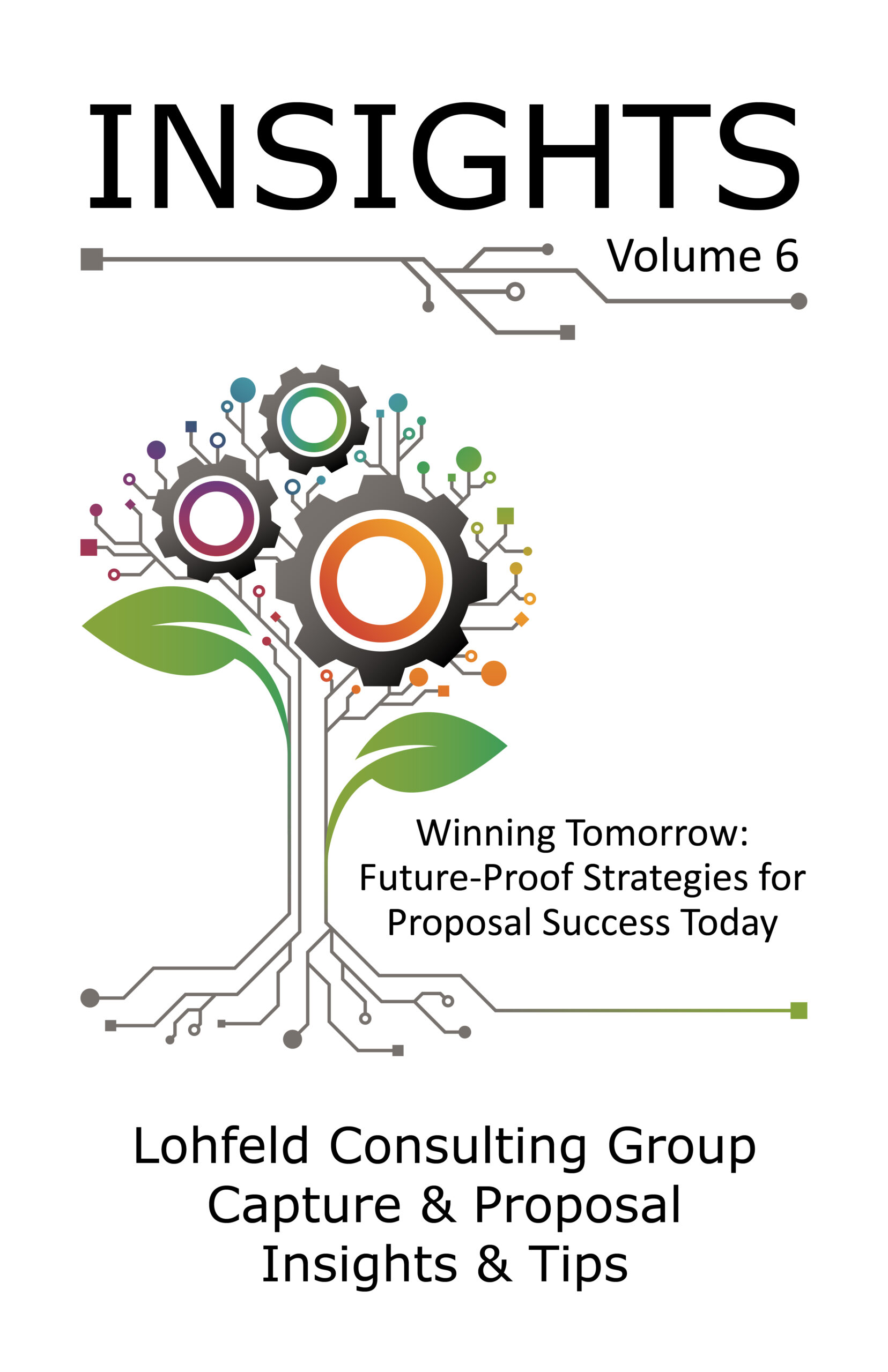Analyze Evaluation Criteria to Increase Proposal Scores Now

Let’s face it—we’d all be doing it if there were a surefire technique for scoring Outstanding on every proposal with every strength recognized, and every benefit applauded. Instead, we have a proposal development discipline (as much art as science) that we follow to generate scorable strengths. Then we wait and hope the proposal gods look favorably upon us.
Here’s a suggestion to help get that head nod from those proposal gods—use the information in the adjectives and adverbs in the proposal evaluation factors, subfactors, and standards to guide how you define value and focus your scoring effort. In a carefully considered and well-written solicitation, the adjectives and adverbs in the evaluation criteria give you significant clues about what the end user values and how they will score your offering.
AI Description of Adjectives and Adverbs Used in Evaluation Criteria
To illustrate this idea, I asked ChatGPT-4, the OpenAI Generative Artificial Intelligence (AI) tool, to generate some examples of potential evaluation factors. I’ve highlighted the adjectives and adverbs that, in my opinion, tell us most about the qualities the customer values:
- Utilization of Resources: This factor evaluates how effectively and economically a bidder plans to use available resources, such as staff, equipment, and materials, to achieve the desired outcomes.
- Technical Approach: This factor assesses the bidder’s ability to apply creative and cutting-edge solutions to meet or exceed the project’s technical requirements.
- Risk Management Strategy: This factor considers the bidder’s ability to identify, analyze, and systematically address potential risks in a thorough and proactive manner. It includes assessment of contingency planning and risk mitigation strategies.
- Quality Assurance Plan: This factor evaluates the soundness and rigor of the bidder’s proposed quality assurance processes and procedures. It assesses how the bidder plans to maintain consistent high quality in their deliverables throughout the project lifecycle.
- Tailored Solutions: This factor assesses the bidder’s ability to adapt and customize solutions to meet specific customer needs quickly and appropriately. It evaluates how well the bidder understands the unique requirements of the project and how they plan to respond to changes or unforeseen challenges.
We’ve all been trained to think about “answering the mail” on evaluation factors by answering the question, “How will we do this?” in such a way as to score well. But how much time do you spend looking at the adjectives and adverbs to answer the question, “How can we deliver more of the value that our customer wants than our competitors?” The adjectives and adverbs give us more than just a clue.
AI Definition of the Adjectives and Adverbs Used in the Evaluation Criteria
In the same conversation with ChatGPT-4, I asked for definitions of the adjectives and adverbs in the notional evaluation factors above. I’ve done some very light editing of the ChatGPT-4 output for brevity.
- Effectively: Producing the intended or expected result. In evaluation criteria, it could refer to a solution that not only meets the requirements but does so in an efficient and effective manner.
- Economically: Efficient and cost-effective use of resources. Meets all requirements without unnecessary expense, providing good value for money.
- Creative: Thinking in a novel way to produce innovative solutions. Might offer a unique or inventive solution to the problem at hand.
- Cutting-edge: Refers to the latest, most advanced stage in the development of something. Could refer to technology or methods that are at the forefront of innovation and advancement.
- Systematically: Refers to a methodical and organized approach. Might imply a process that is carried out according to a fixed plan or system, leaving no room for randomness.
- Thorough: Being comprehensive and detailed. Implies that all aspects of the task have been considered and addressed, leaving no gaps or unanswered questions.
- Proactive: Implies taking initiative and acting before a situation becomes a problem. Might refer to a solution that anticipates potential issues and includes strategies to mitigate them before they occur.
- Soundness: Refers to the stability, reliability, or validity of a particular approach. This could mean that the proposed methodology can withstand scrutiny, ensuring that it will meet the project’s needs.
- Rigor: Denotes strictness, exactness, and precision in the approach. Carefully and meticulously designed, meeting all the technical specifications and standards.
- Quickly: Doing something in a short time or without delay. Might relate to the ability to deliver a solution or respond to changes or issues in a timely manner.
- Appropriately: Suitable or proper in the circumstances. Aligns well with the specific requirements and context of the project, neither exceeding nor falling short of what is needed.
For example, based on the information above, we know that the customer wants a risk management approach that, among other things, identifies, analyzes, and addresses potential risks systematically. Presumably, that systematic approachgives the customer confidence that we are leaving as little room as possible for undesirable surprises. We can make this one of our points of emphasis that we have a highly organized approach, presumably enhanced by staffing with subject matter experts and bolstered by a proven tool suite.
Summary
Seek out a methodology for differentiating your offering’s systematic approach. Also, use the customer’s language to state your case for a scorable strength knowing that proposal evaluators are trained to skim and word search, looking for strengths, weaknesses, and deficiencies.
In summary, use adjectives and adverbs in the evaluation criteria that make the case that your proposal delivers more value in exactly the language the customer used to define the qualities they care about the most.
By Bruce Feldman, Principal Consultant at Lohfeld Consulting Group, providing strategy, capture and business development training for the federal market.
Lohfeld Consulting Group has proven results specializing in helping companies create winning captures and proposals. As the premier capture and proposal services consulting firm focused exclusively on government markets, we provide expert assistance to government contractors in Capture Planning and Strategy, Proposal Management and Writing, Capture and Proposal Process and Infrastructure, and Training. In the last 3 years, we’ve supported over 550 proposals winning more than $170B for our clients—including the Top 10 government contractors. Lohfeld Consulting Group is your “go-to” capture and proposal source! Start winning by contacting us at www.lohfeldconsulting.com and join us on LinkedIn, Facebook, and Twitter.
Paperback or Kindle
10 steps to creating high-scoring proposals
by Bob Lohfeld
contributors Edited by Beth Wingate
Subscribe to our free ebrief
Teaming friends, frenemies, and enemies—12 tips to mitigate harmful effects
Did you know that contracting officers spend up to 20% of their time mitigating disputes between teaming partners? In an informal poll we conducted on LinkedIn last month, 40% of respondents classified their teaming partners as “frenemies” on their last bid.
Explore Further
- Advice (540)
- AI (32)
- APMP (18)
- Army MAPS Contracts (4)
- Business Development (300)
- Capture Management (270)
- Complex Technology Grants Services (26)
- Favorite Books (5)
- GenAI (5)
- Go-to-Market (28)
- Graphics (5)
- Lohfeld Books (2)
- NASA SEWP VI Contracts (2)
- Navy SeaPort-NxG Contracts (2)
- NIST MSE Grants (1)
- NIST NAPMP Grants (2)
- Past Performance (63)
- Post-submission Phase (14)
- Pre-RFP Preparation (268)
- Proposal Management (347)
- Proposal Production (79)
- Proposal Reviews (42)
- Proposal Writing (112)
- Pursuit Phase (110)
- Research Report (4)
- Resources (64)
- Tools & Tips (430)
- Training (13)
- Uncategorized (223)

Sign Up for INSIGHTS and Download your FREE book
We'd love to help you with your proposals. Enjoy our complimentary Lohfeld Consulting Group Capture & Proposal Insights & Tips book with your FREE subscription to our Insights Newsletter.
GET YOUR FREE BOOK



